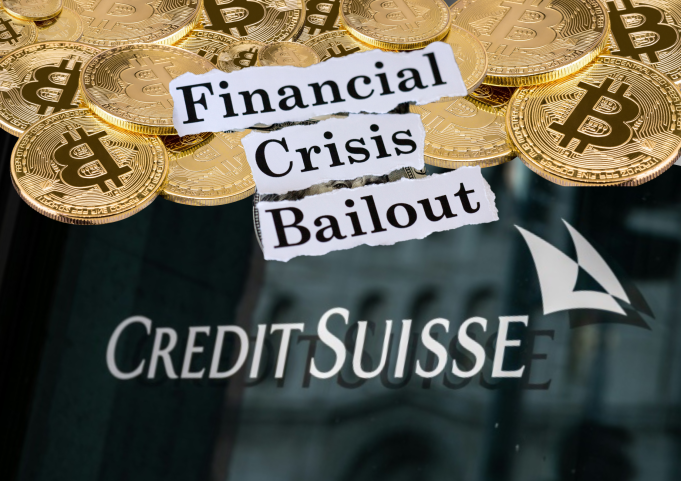Bitcoin has remained steady above $24,500 after the Swiss National Bank agreed to lend troubled investment bank Credit Suisse about $50 billion. Investors are hopeful that the U.S. central bank will turn more dovish at its next rate-setting meeting, and BTC has been trading between $24,000 and $25,000 since Tuesday afternoon. The largest cryptocurrency by market capitalization is up 19% over the week, and is currently trading at $24,791, up 1.4% over the past 24 hours. With renewed market optimism about the U.S. banking sector and the Federal Reserve potentially suspending its current regime of interest rate hikes, BTC is expected to remain range-bound in the near future.
The CME FedWatch Tool, a predictor of interest rate decisions, has seen a dramatic shift in its forecast this week. It now predicts an 80.5% chance of a 25 basis point rate hike, compared to last week’s 68% chance of a 50 basis point rate hike. This shift in outlook has been met with a show of resilience from Bitcoin, which has demonstrated its ability to act as a hedge against monetary irresponsibility, according to Singapore-based crypto options trading firm QCP Capital.
Ether (ETH) and Binance’s native token BNB have seen a surge in prices, with ETH hovering around $1,690 and BNB jumping 7% to $328. The Graph’s GRT token also rose 13%. The CoinDesk Market Index, which measures overall crypto market performance, was up 2%. U.S. equity markets also rose, with the S&P 500, Nasdaq Composite, and Dow Jones Industrial Average up 1.2%, 1.8%, and 0.7%, respectively. This surge in crypto and equity markets is likely due to U.S. regulators’ backstop for depositors at Silicon Valley Bank and Signature Bank.”
The European Central Bank (ECB) has increased its interest rate by 50 basis points in response to rising inflation on the continent. This move is seen by QCP Capital as a precursor to the Federal Reserve raising interest rates by 25 basis points. Central banks are continuing to fight against inflation while also working to protect troubled financial institutions. This move by the ECB is likely to have an impact on the Fed’s decision, as any overly dovish stance could cause fear in markets, while a pause could confuse the message on inflation.












